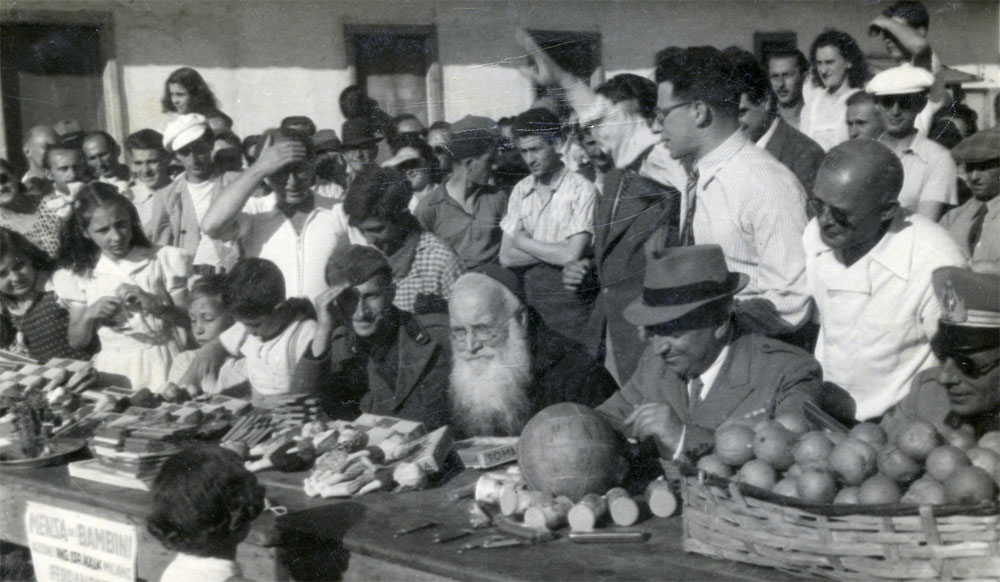Michele Sarfatti I confini di una persecuzione-Il fascismo e gli ebrei fuori d’Italia (1939-1943), Viella, Rome, 2023
 Adding to his decades-long seminal research on Italian Fascism, Michel Sarfatti’s new book I confini di una persecuzione (The Borders of a Persecution-Fascism and the Jews outside of Italy 1939-1943,) examines the treatment reserved by the Italian regime to Italian and foreign Jews in Italian colonies and controlled territories outside the peninsula. As usual, the work is based on extensive archival research and sheds new light on Mussolini’s personal involvement in anti-Jewish measures and legislation near and far from Rome. The areas examined span from the Dodecanes islands in the Aegean Sea to Libya, Tunisia, the Italian-controlled areas of Croatia and Slovenia, France and Greece, as well as Ethiopia, Eritrea, and Somalia.
Adding to his decades-long seminal research on Italian Fascism, Michel Sarfatti’s new book I confini di una persecuzione (The Borders of a Persecution-Fascism and the Jews outside of Italy 1939-1943,) examines the treatment reserved by the Italian regime to Italian and foreign Jews in Italian colonies and controlled territories outside the peninsula. As usual, the work is based on extensive archival research and sheds new light on Mussolini’s personal involvement in anti-Jewish measures and legislation near and far from Rome. The areas examined span from the Dodecanes islands in the Aegean Sea to Libya, Tunisia, the Italian-controlled areas of Croatia and Slovenia, France and Greece, as well as Ethiopia, Eritrea, and Somalia.
While there were specific and partial studies on the Jews in some of these territories, the merit of Sarfatti’s achievement is to provide us with a complete and comparative picture. While in most of these territories, each with a specific relationship to Italy, Mussolini’s regime enforced to various degrees the Italian racist laws he had envisioned, as early as 1938, relocating Italian Jews to Ethiopia, Eritrea, and Somalia; thus, these countries, were not explicitly closed to Jewish immigration. Delving into for historical and demographic questions, Sarfatti’s research shows with a great deal of nuance that the persecution assumed different forms and virulence depending on geography and chronology.
Among the many new insights that emerge from this book is the well-argued evidence that Mussolini was keenly interested in all aspects of “the Jewish question” and followed it closely, even abroad, in a constant ever-shifting attempt to advance the Fascist cause and imperial aims. Further, Italian Fascism was “flexible” and opportunistic in this regard, often intertwining anti-Jewish policies, with economic ones as well as with the shifting condition resulting, after 1940, from the military involvement in World War II.
The relationships with the Germans and with the Allies made Italy’s implementation of anti-Jewish policies somewhat variable in different places and at different times. The decision to protect and or persecute Jews, at specific times, became a political expedient. Well aware of the Nazi’s steadfast determination to eliminate Jews, the Fascists often used the Jews in their territories as bargaining chips.
Sarfatti’s reconstruction of the previously incomplete history of Italian Jewish persecution outside of the national boundaries provides a new understanding of the regime’s racial policies and what the destiny of Jews might have been if the Duce’s imperial dreams had come true.
It is essential reading for students and scholars who wish to broaden their understanding of Mussolini’s attitudes toward the well as his foreign policies.






